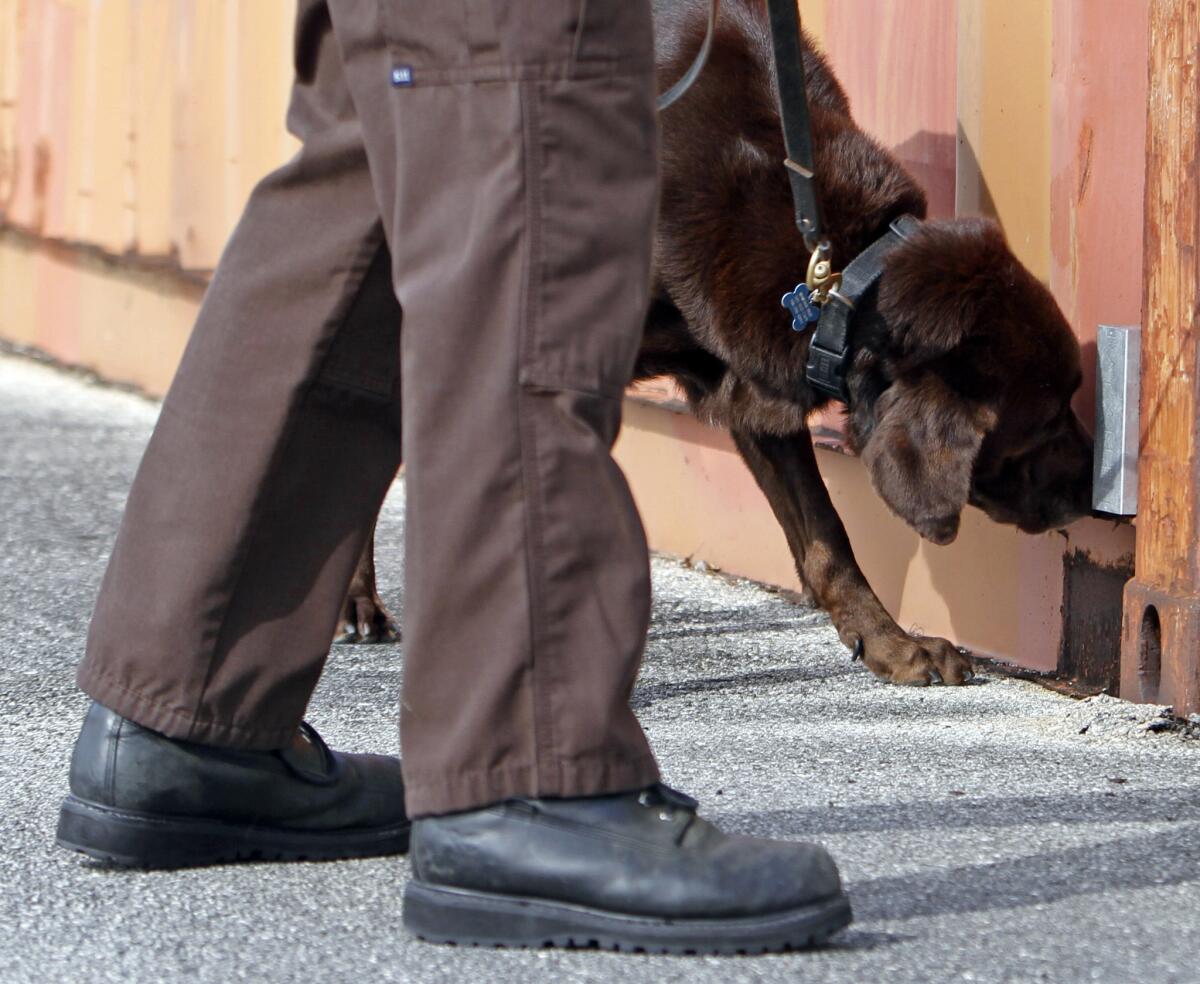Scalia gets it right

- Share via
In his opinions on abortion and gay rights, Justice Antonin Scalia has taken an offensively narrow view of the Constitution’s guarantees of due process and equal protection of the laws. But when it comes to the 4th Amendment’s more specific protection against unreasonable searches and seizures, Scalia has been a strong voice for individual rights. That was the case again Tuesday. Writing for a 5-4 majority, Scalia came down hard on police in Florida who, without having obtained a warrant, deployed a drug-sniffing dog at a homeowner’s front door.
Acting on an unverified tip that Joelis Jardines was growing marijuana, Miami-Dade police had Franky, a Labrador retriever trained to detect marijuana, sniff around the base of Jardines’ front door. Only after Franky gave them the signal they were looking for did they obtain a warrant. Jardines was charged with trafficking in more than 25 pounds of marijuana and stealing the electricity needed to grow it. But the Florida Supreme Court ruled that the evidence had to be tossed out because Franky’s olfactory investigation was an illegal search.
In affirming that decision, Scalia said it was well-established Anglo American law that the protection of the home against unreasonable searches extends to the area “immediately surrounding his house.” Nor did it matter that the law allows visitors to approach the front door of a house. “An invitation to engage in canine forensic investigation assuredly does not inhere in the very act of hanging a knocker,” Scalia wrote. “To find a visitor knocking on the door is routine (even if sometimes unwelcome); to spot that same visitor exploring the front path with a metal detector, or marching his bloodhound into the garden before saying hello and asking permission, would inspire most of us to — well, call the police.”
Welcome as Scalia’s decision is, it was narrower than we would have liked. In deciding whether police have engaged in an unreasonable search, the court has employed two tests. The one cited by Scalia in this case involves whether there has been a trespass on private property. But in 1967, the court adopted a broader definition of an illegal search when it ruled that the 4th Amendment was violated when police affixed a wiretap to the outside of a telephone booth being used by a gambler. What mattered, wrote Justice John Marshall Harlan in that case, was whether the suspect had a reasonable expectation of privacy.
As Justice Elena Kagan pointed out in a concurring opinion, grounding this decision in Jardines’ expectation of privacy would have produced the same result. But it also would have emphasized, at a time of growing anxiety about surveillance by drones and computer programs, that the government doesn’t have to set foot on your physical property to violate your privacy.
More to Read
A cure for the common opinion
Get thought-provoking perspectives with our weekly newsletter.
You may occasionally receive promotional content from the Los Angeles Times.






